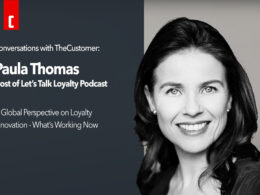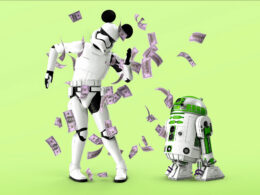Lots of folks are looking forward to the Fourth of July, and why not? It’s America’s birthday. An observance of the 13 colonies’ battle for independence. A time of American pride and freedom. With flags, marching bands, picnics, parades, and fireworks. And almost always pie. A day off too. American consumers know how to throw a birthday party, so what’s not to look forward to?
By Robert Passikoff
We look forward to the 4th too. I’m a Sousa-man myself, but primarily because that’s when we release our annual Most Patriotic Brands survey. Seems an appropriate time to measure which brands consumers feel best embody the value of “patriotism,” the reason for everything else that day. This is our 20th year conducting this survey, but why bother? Why bother to measure the single value, “patriotism,” for all that time?
Well, mainly because brands able to differentiate themselves and engage consumers via an emotional value always see increased engagement. Increased engagement always results in better consumer brand behavior, which always results in better profits. In most cases, six times better. And while I am a great advocate of better brand profitability, that’s not why I did it.
I initiated the study in 2002 – about six months after the September 11th attacks because I was angry. About the malevolence of the attacks and the lives lost, of course, but I was also professionally outraged. Look, after 9/11, citizens of the United States and people of the world came together and did stuff in the spirit of support, condolence, and, yes, patriotism. That was good. Brands did stuff too. In some cases, pretty hinky stuff. So, not so good.
For many months after the attacks many brands made patriotism their #1 objective. Brands rolled out Uncle Sam and Lady Liberty look-alikes. They cued marching bands and majorettes. They adopted red-white-and-blue leitmotifs. They wrapped themselves in the flag, some more tightly than others, even though they had no real foundation – history or heritage – to do so. They pushed as many patriotic buttons they could. Sure, to mark the circumstances, but mostly to exploit sales.
Too cynical? Derisive? Scornful? I hope so. But here’s the thing: Many, many of the brands being as patriotic as all get-out, were, not to put too fine a point on it, not American brands! I mean, “support” is one thing, “patriotism” another. Here you had foreign brands trying to co-opt the value of American patriotism – for profit. American brands weren’t blameless either. Some American brands twisted themselves into any patriotic position they could, no matter how uncomfortable. It was both tragic and laughable, so I laughed. As to the tragic part, I decided to do something about it. To really measure which brands consumers saw as “patriotic.” And that’s what we did. For the first time, in 2002.
Now you just can’t ask people if a brand is patriotic. Even in 2002, a brand saying it and being it were two entirely different things. But since domestic and foreign marketers look at Independence Day as an opportunity to inject themselves into the celebration – the operating theory being patriotic, flag-waving will motivate consumers – we wanted to see which brands actually led the patriotism parade.
So, we applied our psychological measures to the problem. And because many emotional values drive brand engagement, we had consumers evaluate 35 of them. Then we did a statistical “drill-down” to identify what degree brands were more (or less) aligned with the value, “patriotism.” And that’s what we’ve done for the past 20 years. And from two decades of meticulous research, we know absolutely positively successful leveraging of an individual brand value has more to do with believability via emotional engagement than brand awareness via ad budget. Oh, and heavy-handed patriotic themes really don’t help. Consumers are on to that!
Whether patriotism can be credibly leveraged is more a question of whether that value is a fundamental, resonant characteristic of the brand and whether consumers will acknowledge it on an emotional and participatory bases. Slapping an American flag on something and having an authentic foundation to be able to slap an American flag on something aren’t the same thing. Consumers know that too. More importantly, they act upon that knowledge. Twenty years of our lists prove it.
Changes in tech and the timbre of the times have resulted in shifts in 60% of the top-10 brands consumers view as most patriotic today. Sure, some brands disappeared, some dwindled, and new brands emerged. But some brands remained true to consumers’ expectations when it comes to being patriotic. Take a look.
2022 2002
1. Jeep 1. Jeep
2. Disney 2. Hershey’s
3. Amazon 3. Coca-Cola
4. Walmart 4. Kodak
5. Coca-Cola 5. Levi Strauss
6. American Express 6. Colgate
7. Ford 7. Zippo
8. Apple 8. Marlboro
9. Coors 9. Walmart
10. Levi Strauss 10. Gillette
If you’d like to see this year’s top 50 most patriotic brands, you can find them here, proof positive emotion always trumps the rational. And, when it comes right down to it, there aren’t a whole lot of things more emotional than patriotism.
Another lesson from 20 years conducting the survey is truly emotional values act as surrogates for added-value for brands. Because brands that can make that kind of connection always have a strategic advantage over competitors when it comes to the battle for hearts, minds, and loyalty of consumers.
Look how that worked out for the 13 colonies!
Happy 4th of July!
Robert Passikoff is founder and CEO of Brand Keys. He has received several awards for market research innovation including the prestigious Gold Ogilvy Award and is the author of 3 marketing and branding books including the best-seller, Predicting Market Success. Robert is also a frequent contributor to TheCustomer.












Great Article Robert, thanks. When people have a belief, it is emotionally wired. If a brand does not make an emotional connection, it cannot have a brand relationship. Just using facts and logic will not do it, the brand must enter an emotional doorway. So – “more to do with believability via emotional engagement than brand awareness via ad budget.” – in this article really registered with me.
Great Article Robert, thanks. When people have a belief, it is emotionally wired. If a brand does not make an emotional connection, it cannot have a brand relationship. Just using facts and logic will not do it, the brand must enter an emotional doorway. So – “more to do with believability via emotional engagement than brand awareness via ad budget.” – in this article really registered with me.